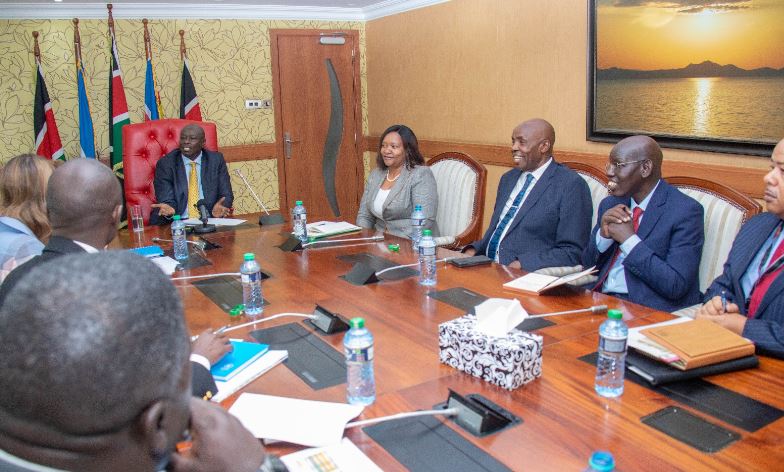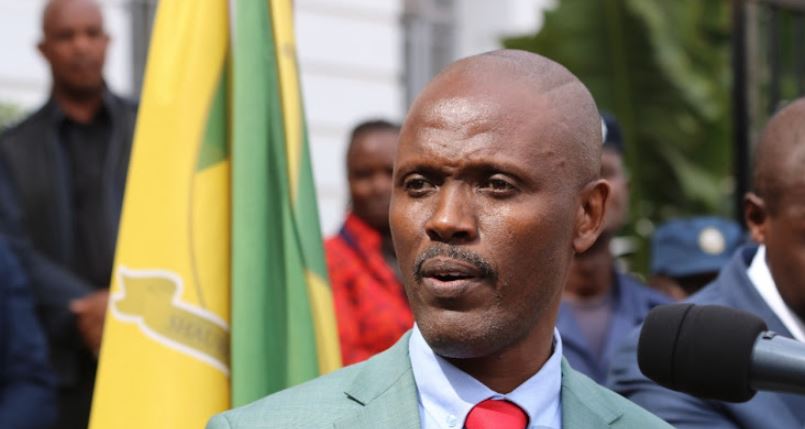
The agency’s Country Director Lauren Landis speaking when she met Deputy President Rigathi Gachagua at Harambee House Annex Wednesday said food and cash will be distributed under the Lisha Jamii Phase II programme between April and September, 2023.
“The second phase is (worth) Ksh 7 billion and we hope to make it Ksh 10 billion. This is substantial, but we still need more,” shesaid.
In WFP Phase I, at least 89,000 households benefited from relief support.
The second phase brings in 157,500 households.
Beneficiaries are identified through the National Government Administrative Authorities and County Governments.
Under Phase II, food assortments and cash will be distributed to families in the identified counties.
Each household will receive Ksh. 11,200 cash in Isiolo, Kitui, Baringo and Tana River counties per month.
An assortment of food of 64kg per household will be distributed in Turkana, Samburu and Marsabit per month.
On the other hand, residents of Wajir, Garissa and Mandera affected by famine will receive Ksh. 5,600 and 34.5 kg of food per month.
Landis said the ongoing nutrition programme for children and lactating mothers will continue.
While thanking the United Nation’s agency for being along standing partner, Gachagua said the government, through the Office ofthe Deputy President and the County Coordinating Committee is working with other partners to save lives and livelihoods.
“We have missed five consecutive rain seasons.This is the longest drought in 40 years. We have over 5.3 million Kenyans facing starvation; we have lost 2.5 million herds of livestock; thousands of children are malnourished; it is that bad. Thank you for committing to mobilise more resources and working with the County Coordinating teams,” Gachagua said.
The Deputy President requested for more partnership in water supply, livestock feeding, nutrition rations for children, expectant and lactating mothers, as well as dialogue and peace-building in conflict areas.
While referring to the volatile security situation in the North Rift as a result of banditry, Gachagua pointed out that food provision, including schools will not only save lives, but also help children to learn instead of picking guns and engaging in rustling.
A return of WFP school feeding programme, which ended in 2017, was discussed as the country works on long term solutions to food security through mitigating the impact of climate change.
The Deputy President was joined by Cabinet Secretary for East Africa Community, Arid and Semi-Arid Lands Rebecca Miano, her Education counterpart Ezekiel Machogu, Basic Education Principal Secretary Dr. Belio Kipsang, Chief of Staff at the Office of the Deputy President George MacGoye, among others.
During the meeting, WFP announced the arrival of 25 metric tons of wheat and 16 metric tons of sorghum at the Mombasa Port next week.









